Digital Marketing Tools for Success Career

Digital marketing tools are software solutions meant to help firms execute, manage, and analyze their online marketing operations. These tools address a wide range of digital marketing needs, including SEO, content development, email marketing, social media management, PPC advertising, analytics, and more. They contribute to streamlining procedures, increasing productivity, and optimizing campaign performance in the digital world.
Understanding Digital Marketing Tools
Digital marketing tools are software solutions that help firms with a variety of online marketing operations, including SEO, content development, email marketing, social media management, PPC advertising, and analytics, allowing for effective campaign execution and analysis.
Email Marketing in Digital Marketing Tools
- Mailchimp
Mailchimp is one of the most popular email marketing platforms, with tools for creating, sending, and tracking email campaigns. It supports customized templates, audience segmentation, A/B testing, and interaction with a variety of e-commerce and CRM platforms.
- Constant Contact
Constant Contact is an email marketing tool created specifically for small businesses and non-profit organizations. It allows you to create professional-looking emails, manage contact lists, track campaign performance, and integrate with other marketing tools.
- HubSpot Email Marketing
HubSpot Email Marketing is one of the HubSpot suite of marketing solutions. It includes tools for building tailored email campaigns, segmenting contacts, and tracking engagement metrics. It also connects smoothly with other HubSpot tools to provide a complete marketing automation solution.
Search Engine Optimization (SEO) in Digital Marketing Tools
- SEMrush
SEMrush is a complete SEO tool that includes features such as keyword research, competitor analysis, site auditing, backlink analysis, and more. It delivers useful insights for increasing website visibility and performance in search engine results.
- Ahrefs
Ahrefs is well-known for its comprehensive backlink analysis skills. It also includes tools for keyword research, content exploration, ranking tracking, and site audits. Ahrefs is popular among SEO professionals for competitive analysis and link development techniques. To learn more about SEO, simply click.
- Google Search Console
Google Search Console is a free service supplied by Google that allows website owners to monitor and maintain their site’s presence in Google search results. It gives information and notifications about indexing issues, search performance, and other topics.
Social Media Management and Digital Marketing Tools
- Hootsuite
Hootsuite is a comprehensive social media management software that allows users to plan posts, interact with their audience, measure analytics, and manage many accounts from a single dashboard. It supports a variety of social media platforms, including Facebook, Twitter, LinkedIn, Instagram, and others.
- Buffer
Buffer is a user-friendly social media management application that allows you to schedule posts, check performance data, and manage numerous accounts. It also includes a browser extension for simple content sharing and scheduling.
- Sprout Social
Sprout Social is a robust social media management and analytics tool aimed at businesses and agencies. It allows you to schedule posts, monitor social conversations, analyze performance indicators, and manage customer relationships across several social media channels.
How to Use Digital Marketing Tools
Identify Your Goals in Digital Marketing Tools
Select your marketing objectives, such as increasing website traffic, generating leads, improving sales, or raising brand awareness. Clear goals can help drive your tool selection and strategy, ensuring that your digital marketing resources are used effectively. Learn how to enhance your English writing skills from this site.


Research and Choose Digital Marketing Tools.
Research and select relevant tools based on your goals, budget, and specific needs. Consider things like features, usability, customer support, and compatibility with your existing systems.
Learn about the digital marketing tools.
Take the time to learn how to use your chosen tool successfully. Many tools include tutorials, instructions, and online courses to help you get started. Examine the tool’s UI, features, and functions carefully.
Set Up Your Campaigns
Use the tool to plan your marketing efforts based on your approach. This may include developing ad creatives, defining targeting criteria, providing money, and planning campaign start dates.
Stay Updated and Experiment
Stay up-to-date on new tool features, updates, and best practices by visiting online resources, community forums, and attending industry events. Also, don’t be scared to try out new techniques and features to determine what works best for your organization.
Continuous Learning
Digital marketing is continuously evolving, therefore it is critical to continue learning and adjusting to industry changes. Stay curious, experiment with new tools and techniques, and never stop honing your talents.
Key Concepts in Digital Marketing Tools
“Key Concepts in Digital Marketing” covers the core principles required for understanding and implementing effective online marketing strategies. These include SEO (Search Engine Optimization), SEM (Search Engine Marketing), content marketing, social media marketing, email marketing, web analytics, conversion optimization, and mobile marketing. These concepts lay the groundwork for effective digital marketing strategies.

- SEO (Search Engine Optimization)
The technique of organically optimizing your website to rank better in search engine results pages (SERPs), hence improving visibility and organic traffic.
- SEM (Search Engine Marketing)
A larger term that includes both sponsored and organic initiatives to improve visibility in search engine results. It frequently refers only to paid advertising, such as Google Ads or Bing Ads.
- Content Marketing
Creating and distributing valuable, relevant material to attract and engage a certain audience. Content marketing seeks to generate lucrative consumer action by offering helpful information and establishing trust with the target audience.
Importance of Using Tools for Success
In today’s digital world, using digital marketing tools is critical to achieving success in any business venture. These platforms provide unmatched potential for reaching and connecting with target audiences while being cost-effective and efficient.
Businesses may improve their exposure, raise brand awareness, and generate targeted traffic to their websites by utilizing platforms such as social media, email marketing, search engine optimization (SEO), and analytics tools.

digital marketing technologies provide essential insights into customer behavior and preferences, allowing businesses to modify their marketing tactics to achieve optimum efficiency.
Businesses can use data analytics and monitoring metrics to measure the success of their campaigns in real time and make informed decisions about how to further optimize their marketing efforts.
Evolution of Digital Marketing Tools
Digital marketing techniques have evolved significantly, from basic email and banner ads to advanced analytics-driven systems. Today’s landscape includes social media management tools, SEO optimization software, and artificial intelligence-powered marketing automation solutions.
These solutions provide accurate targeting, tailored messaging, and real-time performance tracking, allowing marketers to optimize campaigns and increase customer engagement. As technology evolves, the digital marketing toolkit expands, providing novel answers to changing customer expectations and industry trends.
Skills and Qualifications for Digital Marketers
Digital marketers must have technical competency with technologies, analytical capabilities for data interpretation, creativity in content production, good communication skills for cooperation, and certifications such as Google Ads or HubSpot to validate expertise and keep current in the area.

Technical Skills
- Proficiency with Tools
Digital marketers must be proficient in using a variety of digital marketing tools and platforms, including Google Analytics, Google Ads, Facebook Ads Manager, SEO tools (e.g., SEMrush, Ahrefs), email marketing software (e.g., Mailchimp, HubSpot), and social media management tools (e.g., Hootsuite, Buffer).
- Understanding of Tool Functionality
They should have a deep understanding of how these tools work, their features, and how to leverage them effectively to achieve marketing objectives.
Analytical Skills
- Data Interpretation
Digital marketers require excellent analytical skills to understand data from a variety of tools and platforms, including website analytics, social media metrics, and advertising performance statistics.
- Data-Driven Decision Making
Analytical abilities allow marketers to make data-driven decisions, optimize campaigns in real time, and effectively allocate resources based on insights gleaned from analytics tools.
Communication and Interpersonal Skills
- Client Communication
Effective communication skills are required while working with users, other team members, and external vendors to comprehend project requirements offer updates, and handle issues.
- Collaboration
Digital marketing frequently operate in cross- functional team; thus, good interpersonal skills are essential for cooperation idea generation, and collaborative marketing initiative execution.
Analytics and Reporting for Digital Marketing Tools
Analytics and reporting digital marketing tools such as Google Analytics, Google Data Studio, Databox, Cyfe, and Klipfolio enable marketers to track, analyze, and visualize data from multiple sources, allowing for more informed decision-making and the optimization of marketing strategies for better performance.

Google Analytics
A complete web analytics tool that gives information about website traffic, user behavior, and conversions. It enables in-depth study and tracking of critical data to improve marketing tactics.
Google Data Studio
This tool allows users to generate personalized and interactive dashboards and reports based on data from a variety of sources, including Google Analytics, Google Ads, and other third-party platforms.
Klipfolio
Klipfolio provides customisable dashboards and reports to assist marketers manage key performance indicators (KPIs) and metrics from numerous data sources, allowing for data-driven decision-making and campaign optimization.
Conclusion
Selecting the correct digital marketing tools is critical for success in today’s competitive world. These tools are critical for reducing procedures, increasing efficiency, and optimizing marketing campaigns.
Continuous learning and adaptation are required to stay competitive in the rapidly expanding industry of digital marketing. As technology improves and customer behaviors change, marketers must remain adaptable and aggressive in adopting new tools and strategies.
Investing in ongoing education, attending professional conferences, and being current on emerging trends are crucial for remaining relevant and competitive in the digital sphere.



